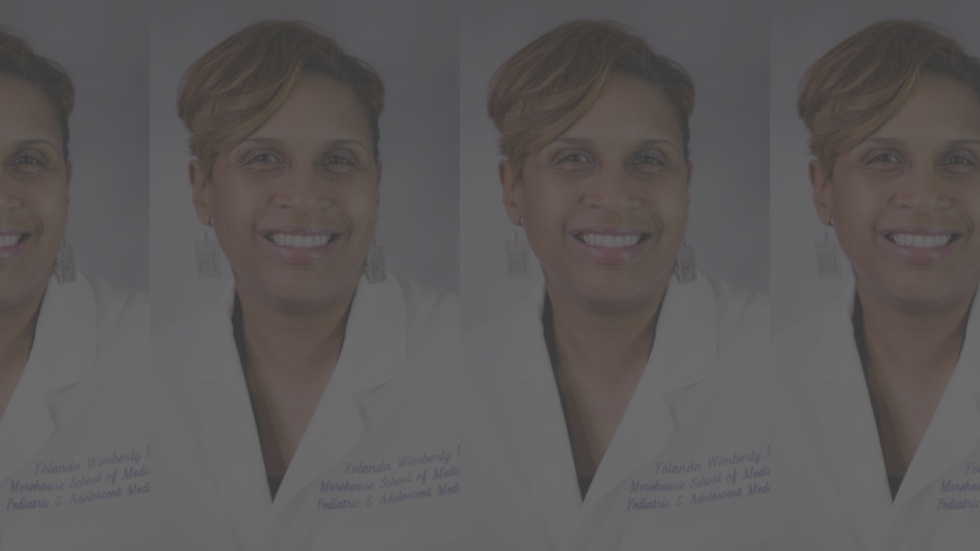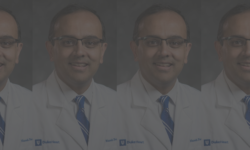
For Grady Memorial Hospital Senior Vice President of Health Equity Yolanda Wimberly, teaching and learning are paramount.
“To me, education is something that’s foundational and is warranted … it’s essential, especially if you want to be a physician, because we’re lifelong learners,” Wimberly said. “It doesn’t stop when you get out of school, it continues on.”
Wimberly had initially hoped to become a high school teacher, noting that she had “always wanted to help others.” However, her father encouraged her to pursue medical school.
After graduating from Michigan State University with a degree in chemistry on the pre-medical track, Wimberly attended Meharry Medical College, a private, historically Black medical school in Nashville, Tennessee. Following the completion of her Doctor of Medicine, she obtained her Master of Science in Epidemiology from the University of Cincinnati.
Wimberly later fulfilled her pediatrics residency at Children’s Memorial Hospital at Northwestern University, as well as her fellowship in adolescent medicine at Cincinnati Children’s Hospital.
“In the end, I did become a teacher,” Wimberly added. “A teacher to my medical students, and a teacher to my patients.”
In 2016, Wimberly became the senior associate dean of clinical affairs at Morehouse School of Medicine at Grady Memorial Hospital. During this role, she helped initiate a large volume of developmental and foundational programs — she increased the size of the school’s graduate medical education programs by 50% and helped start the school’s first fellowship programs.
Furthermore, Wimberly noted that, due to the closure of the Atlanta Medical Center in November 2022, Grady Memorial Hospital is Atlanta’s only nationally verified Level 1 trauma center. Being ready, she added, is imperative to what they do.
“We are ready to stand ready to provide the resources needed to the community in that aspect,” Wimberly said. “I hope that we do get more [trauma centers] in the Atlanta area, but for now, we stand ready to assist if we’re the only one.”
Reducing health disparities and inequities
Wimberly transitioned to her current position as chief health equity officer and senior vice president in 2021. In this role, she assists in implementing the Grady Health Equity Officer Strategic plan, which includes four pillars — care quality, community engagement, cross-cultural empathy and social justice/advocacy. The pillars are aimed at informing “community-based interventions” that reduce health disparities and inequity gaps.
“We want to have programming and have the ability to increase the life expectancy in the communities we are privileged to serve,” Wimberly said. “That’s the ultimate goal — is to increase the life expectancy of the people that we serve. And the way that you do that is by decreasing the inequities within the system.”
An example of a community partnership that aims to reduce health disparities is with Dekalb-based nonprofit organization Flowing with Blessings, which provides access to showers and clothing to houseless people every week. Volunteers are stationed outside of the Grady Memorial Hospital entrance in a set of three trailers, which provide shower compartments for the greater Atlanta community.
According to their mission statement, Flowing with Blessings intends to “encourage proper hygiene, restore dignity and to offer fresh hope through hot showers.”
Additionally, the Teen Experience and Leadership Program (TELP) is a summer program started this year that allows high school students to shadow health professionals in the hospital in 4-hour shifts. According to Wimberly, it allows teenagers to experience what it’s like to be on the front lines in healthcare.
A challenge Wimberly noted was learning how to listen to others, form synergy and find common ground, in order to move forward and be successful together. Though her team hoped for the same common outcome — to provide people the best healthcare — they needed to cooperate and talk through the steps to get there.
“So what I had to do was really listen to everybody’s side of the story,” Wimberly said. “And then I had to really sit back and formulate a plan that the key elements that were good from everybody’s point of view.”
Moving forward, Wimberly added that she hopes to continue doing her job and improving people’s lives, whether through increasing their healthcare workforce or providing excellent patient care.
“I want to be in a position where I can make a significant impact on health care.” Wimberly said. “I’m still searching to see what that looks like. There’s so many different opportunities and avenues to be able to make an impact but for me. I have to see what the best one is for me, and I think I’m still searching for that.”




